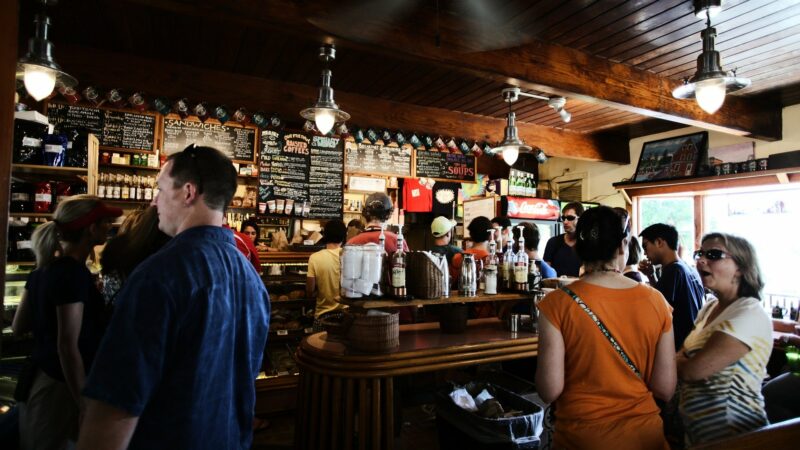
Hospitality is both one of the worst hit sectors by the virus and one with a disproportionate number of young, low-paid, insecure workers. A vast majority working in the sector have been furloughed during the coronavirus crisis. Business groups and trade unions had called for the furlough scheme to be introduced to protect against mass redundancies and ensure that – once safe to do so – businesses would be ready with the staff and expertise in place to reopen quickly.
Furlough represents a massive investment in our businesses and workers. For it to be judged a success, we would expect to see a return on that investment with jobs and livelihoods saved and an economy that is able to restart quickly. But in his announcement on Sunday, Boris Johnson said that some hospitality businesses may be able to open at the beginning of July.
Business owners like me, and the workers that rely on us, are anxiously waiting to see what will happen at the end of June when the furlough scheme is currently due to end – when we know that it will be at least a month before we can open. Even if we allow pubs, clubs and restaurants to reopen, it is clear that with social distancing in place they will have to do so at a reduced capacity with extra staff. It will make businesses unviable.
Business organisations and Labour have been calling for more flexibility in the furlough scheme to allow for part-time working, so that we can ease workers back into their jobs and get companies back on their feet. This is particularly important in businesses where each member of staff will have specific expertise that is needed for the whole process to work. This is a way to ease out of the lockdown and get people back to work.
Hospitality workers will need longer to return to work because of the requirements of social distancing measures. If we need them to stay at home, then it is only fair that we support them in doing so by extending the furlough scheme – with no penalty to them. Both increased flexibility and an extension to the scheme are supported by the Labour frontbench and have been called for by business.
Instead of sensible measures that will allow a gradual restarting of the economy, we are faced with the possibility that the amount of help will be reduced to 60%. Hospitality would be heavily affected by such a move – there is no way to avoid that. Few expect pubs, clubs and restaurants to be able to open until the end of August, two months after the furlough scheme is supposed to end.
Even an August opening will depend on whether individual businesses will be able to enforce social distancing measures and remain profitable, which for many is impossible. And reducing furlough pay to 60%, while employers cannot open up and make a profit, is a cliff edge for workers. Staff won’t have enough income on furlough to pay bills but the businesses that they rely on cannot open up again, forced to remain closed for public health.
While on furlough, employees can look for other work and undertake training. What they can’t do is create jobs from thin air. Tory dogma has always been that people only need to be poor in order for them to go and find work. Their thinking is that conditions for workers should be made increasingly difficult to motivate them to find work. Yet hospitality workers will be trying to find work at the same time as millions of others – there is no magic job tree.
We are heading towards a crisis for these workers. If, as seems likely, we are about to see large numbers of hospitality staff unemployed, then we should be using this time to mitigate that crisis. They will need free retraining and assistance to redeploy to other sectors. And they should not have support gradually taken away from them unless there is something to replace it. We have some time to work it out. Let us not waste this opportunity and lurch into another crisis.




More from LabourList
‘Labour’s quiet quest for democratic renewal’
‘Labour promised to make work pay. Now it must deliver for young people’
‘Council Tax shouldn’t punish those who have the least or those we owe the most’